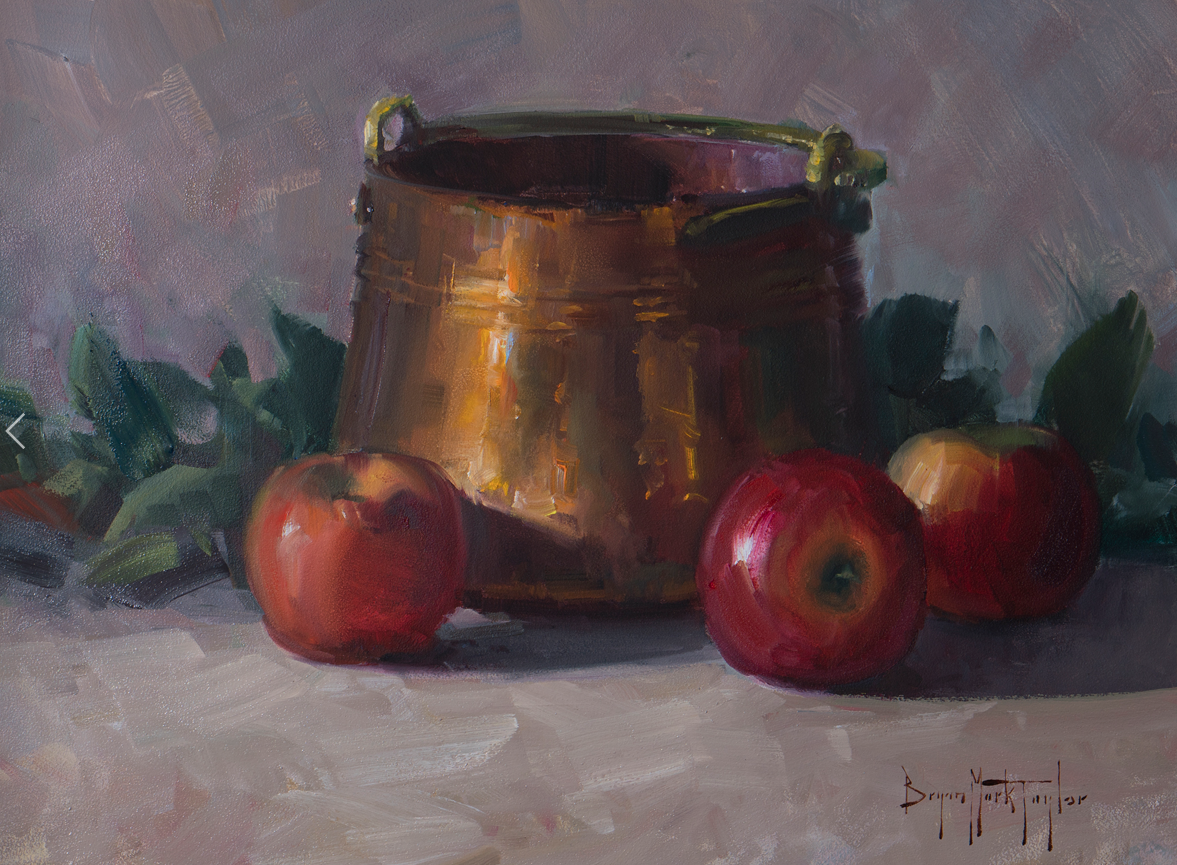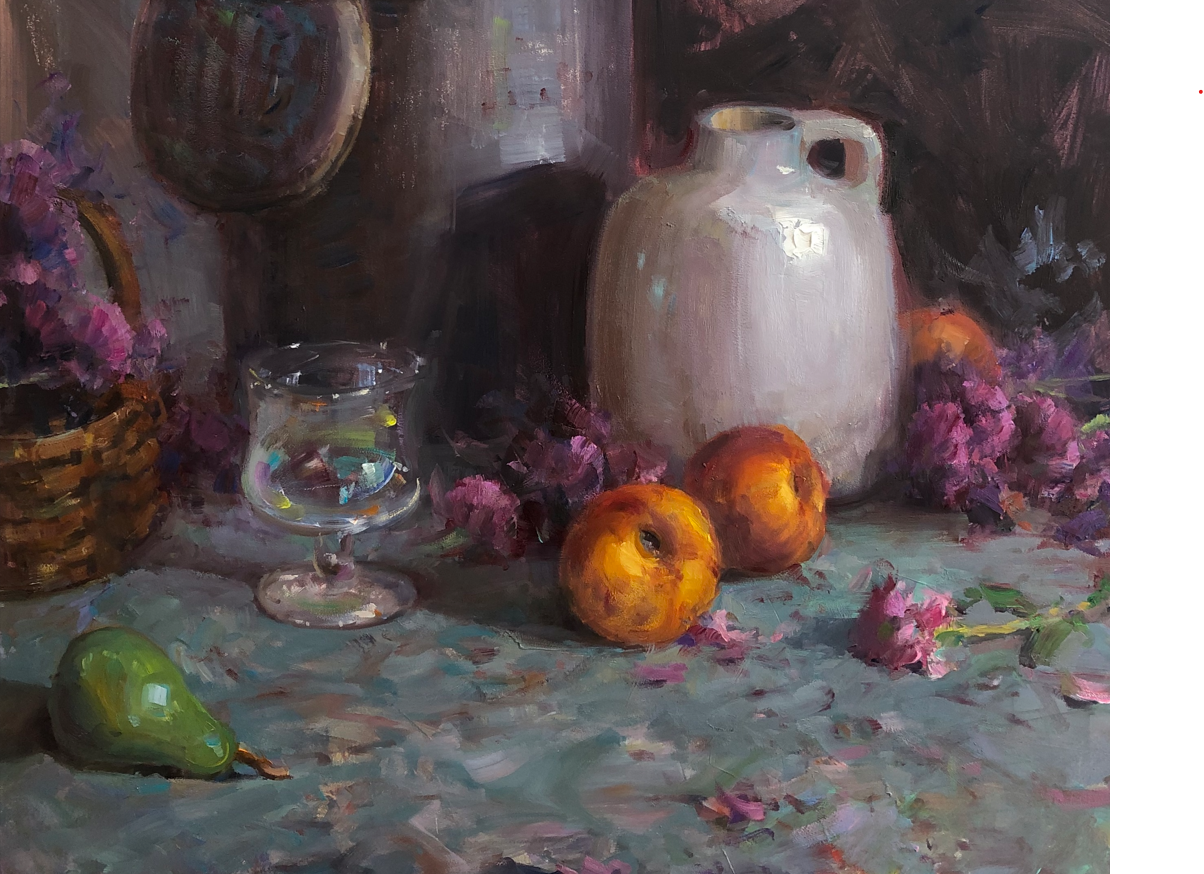Steps to Keep in Mind

The Allure of Alla Prima Still Life Painting
Alla Prima still life painting is a unique and exhilarating way to approach this timeless genre. Unlike traditional layering techniques, Alla Prima invites artists to create a vibrant and immediate representation of their subject in one sitting. The result is a still life that radiates energy and captures the essence of the objects before you.
Selecting Your Subjects
Choosing the right objects for your still life is essential. Look for items that inspire you, have interesting textures, and play well with light and shadow. Experiment with different combinations to create a visually appealing and engaging composition
Setting Up Your Still Life
The setup is crucial to the success of your Alla Prima still life painting. Pay attention to lighting, as it can dramatically affect the mood and atmosphere of your piece. Use natural light or a single light source to create strong contrasts and interesting shadows.
Preparing Your Palette
Before you begin painting, prepare your palette with a limited selection of colors. This will help you create harmonious and cohesive color relationships within your still life. Consider using a warm and cool version of each primary color, along with white and a neutral tone.
The Quick Sketch and Block-In
Start with a quick sketch or block-in to establish the basic shapes and proportions of your objects. This initial step provides a roadmap for your painting and helps you maintain a cohesive composition
Embracing Spontaneity and Brushwork
Alla Prima still life painting encourages bold and spontaneous brushwork. Use a variety of brush sizes and strokes to capture the textures, highlights, and details of your objects. Don't worry about perfection; imperfections can add character to your piece.
Capturing Light and Shadow
Light and shadow play a pivotal role in still life painting. Pay close attention to the way light interacts with your objects, creating highlights and casting shadows. This interplay adds depth and dimension to your painting.
Layering and Blending
In Alla Prima painting, you'll often work wet-on-wet, allowing colors to blend and mix directly on the canvas. Use this technique to create smooth transitions between colors and capture the subtle shifts in hue that occur in your objects.
The Finishing Touches
As you near the end of your painting session, focus on refining details and adding final touches. Enhance highlights, deepen shadows, and make any necessary adjustments to achieve the desired level of realism and expressiveness.
Stepping Back and Reflecting
Before considering your Alla Prima still life painting complete, take a step back and evaluate your work. Consider whether the composition is balanced, if the colors harmonize, and if the overall mood aligns with your initial vision.
Alla Prima still life painting is a unique and exhilarating way to approach this timeless genre. Unlike traditional layering techniques, Alla Prima invites artists to create a vibrant and immediate representation of their subject in one sitting. The result is a still life that radiates energy and captures the essence of the objects before you.
Selecting Your Subjects
Choosing the right objects for your still life is essential. Look for items that inspire you, have interesting textures, and play well with light and shadow. Experiment with different combinations to create a visually appealing and engaging composition
Setting Up Your Still Life
The setup is crucial to the success of your Alla Prima still life painting. Pay attention to lighting, as it can dramatically affect the mood and atmosphere of your piece. Use natural light or a single light source to create strong contrasts and interesting shadows.
Preparing Your Palette
Before you begin painting, prepare your palette with a limited selection of colors. This will help you create harmonious and cohesive color relationships within your still life. Consider using a warm and cool version of each primary color, along with white and a neutral tone.
The Quick Sketch and Block-In
Start with a quick sketch or block-in to establish the basic shapes and proportions of your objects. This initial step provides a roadmap for your painting and helps you maintain a cohesive composition
Embracing Spontaneity and Brushwork
Alla Prima still life painting encourages bold and spontaneous brushwork. Use a variety of brush sizes and strokes to capture the textures, highlights, and details of your objects. Don't worry about perfection; imperfections can add character to your piece.
Capturing Light and Shadow
Light and shadow play a pivotal role in still life painting. Pay close attention to the way light interacts with your objects, creating highlights and casting shadows. This interplay adds depth and dimension to your painting.
Layering and Blending
In Alla Prima painting, you'll often work wet-on-wet, allowing colors to blend and mix directly on the canvas. Use this technique to create smooth transitions between colors and capture the subtle shifts in hue that occur in your objects.
The Finishing Touches
As you near the end of your painting session, focus on refining details and adding final touches. Enhance highlights, deepen shadows, and make any necessary adjustments to achieve the desired level of realism and expressiveness.
Stepping Back and Reflecting
Before considering your Alla Prima still life painting complete, take a step back and evaluate your work. Consider whether the composition is balanced, if the colors harmonize, and if the overall mood aligns with your initial vision.
Alla Prima Still Life Painting

Unlocking the world of Alla Prima still life painting is a journey of spontaneity, creativity, and artistic expression. From selecting your subjects and setting up your composition to adding the finishing touches, every step of the process contributes to the creation of a masterpiece that captures the beauty and essence of your chosen objects. By embracing the immediacy and energy of Alla Prima, you can transform your still life paintings into dynamic and captivating works of art that resonate with viewers and stand the test of time.
Do you like the images used in this post? See all of Bryan Mark Taylor's courses here!
Do you like the images used in this post? See all of Bryan Mark Taylor's courses here!
